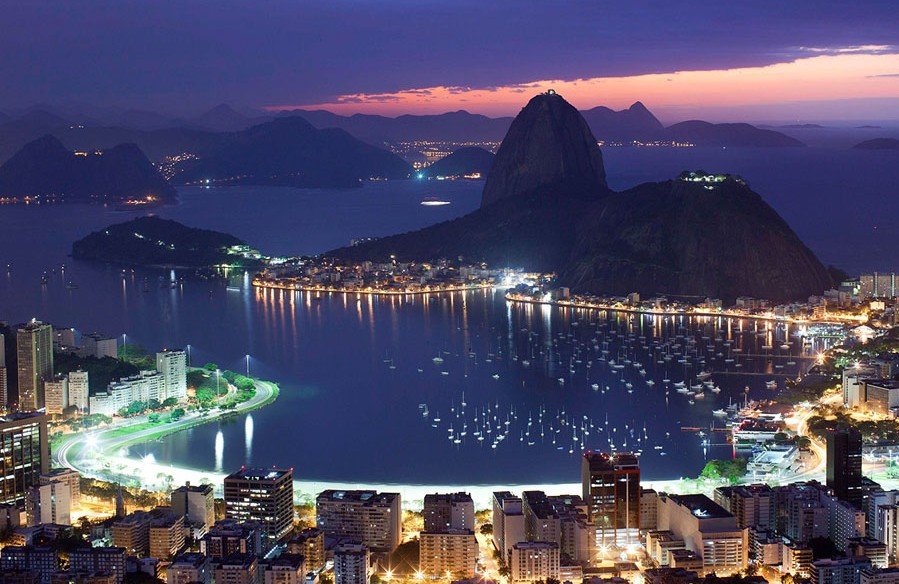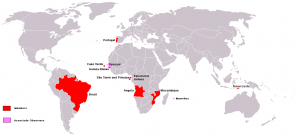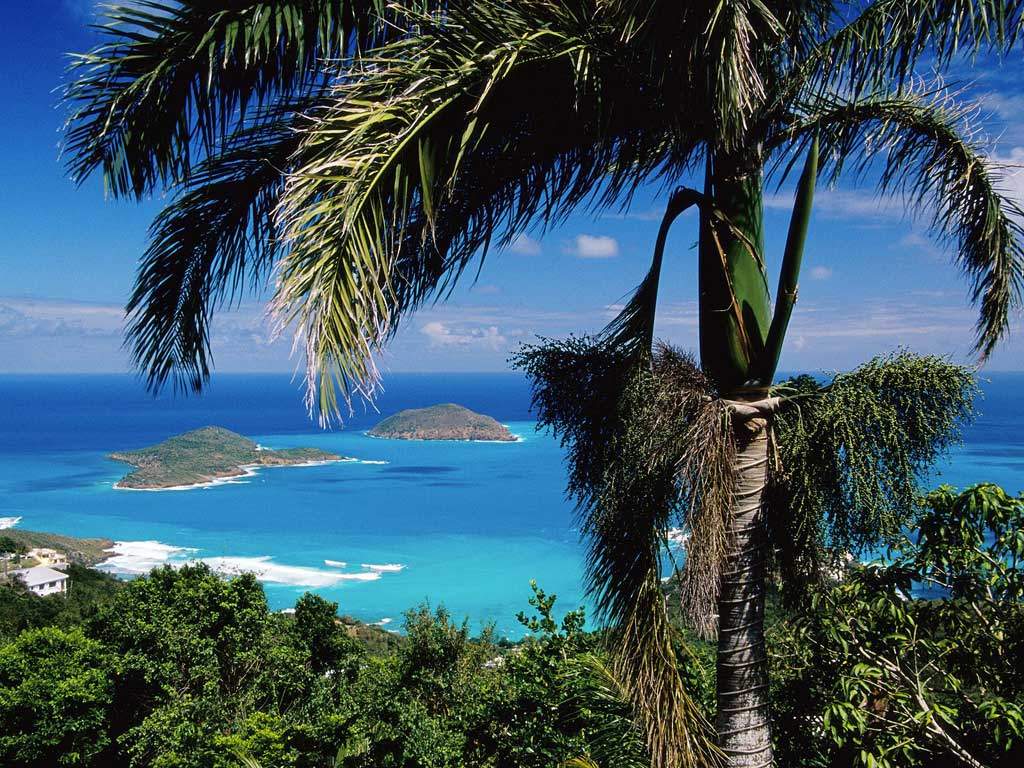We should recognise the ever strengthening position of Portuguese-speaking people in the world.
I borrowed the idea for this title from a magazine article published years ago which claimed that a young Spanish-speaking ‘Generation Ñ’ was bolstering its position in various fields in the United States. Be it as it may, the Portuguese ‘ã’, however, is now clearly asserting its authority in the political and economical alphabet. The Portuguese-speaking or Lusophone world is comprised of eight countries on four continents – Portugal, Brazil, Angola, Mozambique, Cape Verde, Guinea-Bissau, East Timor and São Tomé & Príncipe – totalling 250 million people. Ranked fifth or sixth in the world by number of speakers, the Portuguese language clearly exceeds the limits of a mere linguistic phenomenon and offers great potential for deeper cooperation. Since the Portuguese-speaking nations as a group have thus far remained relatively unfamiliar to Estonians, I will start from more distant lands to return ‘full circle’ to Portugal, our close European ally.
Brazil
Brazil is the biggest country in Latin America and, more importantly, the world’s sixth-largest economy. Since the turn of the century, the nation has enjoyed political stability and has implemented economic reforms that have occasionally been dubbed Brazil’s economic miracle, enabling the emergence of a sizable middle class in the country. Brazil is clearly heading for an unofficial yet still fully-recognised leadership position among Latin American nations. Among other things, this involves shouldering responsibility for global issues which Brazil has indeed been doing with Dilma Rousseff at its helm. When she became head of state at the beginning of 2011, many speculated that Dilma’s – the press uses her first name with, shall we say, respectful familiarity to refer to Brazil’s first-ever female president – term of office would largely constitute only an extra period for the implementation of the policies formulated by her charismatic predecessor Luís Inácio Lula de Silva. So far this has not been the case, at least in foreign policy.
For some time already, Brazil has been a proponent of reorganising the post-World War II system of power relations. It wants to hold a permanent seat at the UN Security Council. Former president Lula mostly focused on strengthening ties with developing nations, primarily those in Africa – the region from which he was hoping to draw active support for Brazil’s efforts. Yet his anti-imperialist rhetoric and criticism of the United States often had a dated ring; in fact, some of his statements elicited a frightening feeling of déjà vu, especially for people from our part of the world. Lula came from a very left-wing background, so he was eager to engage with the shady characters who led Venezuela, Cuba, Sudan and Libya. As a result, Brazil’s behaviour in the international arena was sometimes quite unpredictable. One of his last steps in that direction was Brazil’s joint attempt with Turkey in May 2010 to coax Iran to agree on how to develop its nuclear programme, bypassing UN structures. The attempt was unsuccessful and led to harsh criticism directed against Lula for his venture. However, this had left a mark on the ‘big boys’ playground’ and enhanced Brazil’s reputation as a nation that can and will have its say on global issues. Moreover, only a month before the end of his term, Lula recognised the independence of Palestine based on its pre-1967 borders; Brazil’s example was followed by Argentine, Bolivia, Ecuador, Uruguay, Chile and Guyana. The next president opted for the same approach; Brazil has currently become one of the key promoters of Palestine’s sovereignty.
Although President Rousseff’s foreign policy stance is not as illustrious as that of Lula, the ambitions nurtured at Itamaraty (the headquarters of the Brazilian Ministry of External Relations housed in a palace in Brasília which was designed by the renowned Brazilian architect Oscar Niemeyer) have exceeded their previous limits under her rule. President Rousseff has stressed the need for incorporating Brazil into the Security Council and has taken the issue up both with President Barack Obama and China’s leader Hu Jintao, but neither of them has provided any direct support for the idea. It is obvious that she perceives Brazil as an actor of equal standing with the USA and China – the three of them all form components in a cross-continental triangle. More than 2,000 Brazilians on UN peacekeeping missions show that the nation strives to cultivate its image as an active participant in global politics and reliable partner in crisis solution by taking rational and logical steps: it starts from crises in its immediate neighbourhood (for example, the situation in Haiti and the coup in Honduras in 2009) and builds on that, displaying signs of its growing ambitions on suitable occasions. The key difference between Rousseff’s and Lula’s foreign policies lies in their foci: Lula fixed most attention on cooperation with developing nations, but his successor added strong impetus to Brazil’s relations with the European Union and the United States. Luckily, the latter feeling is mutual: for example, the Americans state in their 2010 national security strategy that ‘we welcome Brazil’s leadership and seek to move beyond dated North-South divisions to pursue progress on bilateral, hemispheric, and global issues.’
As a rapidly developing nation, Brazil is still just finding the image it wants to project to the outside world. In 2007, offshore oil deposits were discovered in the country, giving a significant boost to its economic perspectives. Although it aims to join the Organisation of the Petroleum Exporting Countries (OPEC), which already has one Portuguese-speaking member – Angola – so far it has remained the world’s largest oil producing non-OPEC country. Presently, economic experts appreciate Brazil’s industry and technology potential the most. To put it very simply, many Europeans probably know that their Havaiana flip-flops have been made in Brazil, but not all of them are aware of the fact that Embraer, the world’s third largest aircraft manufacturer, is also located there. Still, in terms of international publicity, the country will certainly profit from hosting the FIFA World Cup in 2014 and the Olympic Games in Rio de Janeiro in 2016.
Yet Brazil’s success story has begun to unravel due to the global economic downturn: the Brazilian economy grew in 2010 by 7.5%, but in 2011 and 2012 barely by 2%. Huge differences in wealth and the need to increase the country’s competitiveness are the two areas causing most concern. In addition, there are high inflation rates: in a chart compiled by The Economist in summer 2012 to rank overheating emerging markets, Brazil came second after Argentina. Like many other rapidly growing markets, Brazil also suffers from corruption, but fortunately President Rousseff seems to be an effective leader in this respect: in 2011, she fired in total seven cabinet ministers involved in corruption scandals and more than a hundred high-level officials. The president’s continuing popularity even after these steps can be interpreted as a promising sign.
In today’s world of largely negative news, we really need someone to make a positive break sometimes. Brazil’s reputation as a Wunderkind might now and again lull us into forgetting that the nation’s middle class is only emerging and therefore weak and that both economies and policies need time for beneficial changes to really take effect. To balance all this, the Estonian reader could turn to Paulo Lins, one of the most celebrated contemporary writers in Brazil, and his somewhat depressing book on drug gangs in the slums of Rio de Janeiro entitled City of God (recently also translated into Estonian as Jumala linn) – the locality he describes is also Brazil.
Angola
When the Estonian business daily Äripäev had published its top of the world’s most expensive cities ranking Angola’s capital Luanda in second place, an Estonian journalist commented that that was probably a mistake. Indeed, due to its violent and problem-ridden past, Angola is a country that has largely escaped Europe’s attention for an extended period. There was a bloody civil war that ended as recently as 2002 and confrontations between rival political forces have continued after that. The country faces major problems: there are enormous wealth disparities and corruption rates are alarmingly high (incidentally, the same applies to economic growth: annual growth rates equalled 20% in 2005–2007), not to mention a whole herd of education and social issues that need to be solved. Still, despite everything, Angola has succeeded in establishing itself as a nation with a functional emerging society and in maintaining peace at home, giving it a significant foreign policy role in the generally unstable West African region.
At the beginning of the century, Angola was not a place often frequented by European leaders. However, José Manuel Barroso visited the country as the first president of the European Commission in April 2012; German Chancellor Angela Merkel had already done so in 2011. It is quite clear that Europe’s interest in the oil-rich country with abundant mineral resources will only grow, especially in an economy in which other foreign forces currently dominate, namely the Chinese and the Russians, followed by the Germans, the French and, quite obviously, the Portuguese.
In the future, Angola will have to deal with various major risks and threats. Still, it cannot be denied that during the past decade it has performed outstandingly well – perhaps not on a global scale, but certainly on the African level..
Portugal
Portugal forms the only part of the Lusophone world located in Europe. As we all know and reiterate every day, Europe is old, sick, tired and in crisis. Despite all that, my good colleague Matti Maasikas has so pertinently pointed out in his blog that Europe is like Tolkien’s Gondor: even when it has been weakened to the extreme, it still remains massively strong. Moreover, the non-European centres of power that have emerged over the last decades still need Europe: not only its technological base, but also its experience in and reputation for solving social issues. This means that Portugal acts in Europe, the European Union and NATO as a ‘bridgehead’ for other Portuguese-speaking nations.
Portugal’s recent developments have been among the most hectic in Europe. It suffices to recall the country’s accession to the European Union in 1986 when its economic growth was record high in Europe, its unemployment rates were non-existent and it attracted an abundant flow of investments. In his book The First Global Village: How Portugal Changed the World, Martin Page claims that Portugal’s miraculous metamorphosis from an underdeveloped agricultural nation into a high-tech one was the first exemplary instance of the now well-known globalisation process. But in 2004, less than two decades later, the renowned Portuguese philosopher José Gil published his book Portugal, Today: Fear of Existing, painting a rather stark picture of Portuguese society and its deficiencies, many of which are also evident in the current crisis. According to Gil, one of the key reasons behind Portugal’s problems is a phenomenon he calls ‘não-inscrição’ (literally ‘non-inscription’, i.e. a refusal to take responsibility). This largely passive feeling that ‘life is elsewhere’ ties in with the country’s totalitarian past, claims Gil In this respect, his ideas could also interest us Estonians.
The economic crisis has forced many European nations to seek export and investment opportunities outside Europe. The Portuguese-speaking world offers itself as a natural and obvious choice for Portugal, which is why its current foreign policy efforts generally focus on business diplomacy, usually targeting areas outside Europe. Moreover, the development of economic relations with other Portuguese-speaking nations does not mean a search for a ‘magic wand’ to save the country from the crisis, but rather the re-establishment of relationships that had long united their policies, economies and people. Having been neglected by the rest of Europe, Angola has been in the top ten of export markets for Portugal at least for a decade already. The two countries have also increased their mutual investments. The Portuguese have gained enormous influence in Angola’s banking sector, while Portuguese large corporations are well positioned in its construction and communication sectors. Some signs point to the possibility that Portugal is following the same pattern in Mozambique. However, all these facts should be kept in proportion: EU member states pursue economic cooperation primarily in Europe and will continue to do so. Although distant markets can complement Europe’s crucial internal market, they cannot substitute it.
Portugal is clearly not competing with Brazil’s glamorous and vibrant media and entertainment industry, but in its own melancholic way it does provide a cultural point of reference: there is plenty of space in the countless cosy bars and clubs in Lisbon and Portugal to fit in all Lusophones (and their songs) from whichever corner of the world they arrive. José Eduardo Agualusa, a writer of Angolan origin, has said: “Only the fall of the empire transformed Lisbon into a true imperial capital in the cultural sense of the word.” To move from music to politics, it was mostly the support of other Portuguese-speaking nations and their regional lobbying efforts that enabled Portugal to gain UN Security Council membership in 2010. Their generous offer of help could hardly have been motivated by mere benevolence – they must have been acting in the hope of Portugal coming to their rescue when needed.
Since Portugal relinquished its hold on its African colonies as late as 1974–75 during the Carnation Revolution, historical topics might still cause friction and animosity there. Brazil, however, has been independent since 1822 and thus outperforms many European nations in terms of experience. Portugal and Brazil share an interesting episode in their history: when Napoleon’s troops were closing in on Lisbon in 1807, Queen of Portugal Maria I fled to Rio de Janeiro together with Prince Regent João and a large court; for the next 13 years the entire empire was ruled from across the ocean. This event can be interpreted as a powerful symbol of the nature of the contemporary Portuguese-speaking world, which operates without any effective leadership.
CPLP
The Community of Portuguese Language Countries (Comunidade dos Países de Língua Portuguesa, CPLP) has its headquarters in Lisbon. Although the CPLP’s visibility is presently not very high in the international arena, the Lusophone dimension provides an interesting background for Portugal in the European Union and NATO. The forum has also proved to be advantageous for the Portuguese-speaking African nations on several occasions, enabling them jointly to win more international recognition.
The organisation’s real value lies in its very diversity and looseness: Portugal can mediate its messages to the European Union and NATO; Brazil’s authority in Latin America facilitates engagement with other nations there; and as one of the richest countries in sub-Saharan Africa, Angola’s past renders it quite influential in that part of the world. All these ties are worth their weight in gold in times of economic hardship: tens and hundreds of thousands grassroots contacts, joint enterprises and people who have lived one half of their lives in one country and the other half in another constitute capital that can survive even the most severe economic crisis. Migration flows can take one direction or be reversed according to pure economic rationale, but almost everyone is still ‘our people’, be it on either side of the Mediterranean/Atlantic. At the same time, the CPLP does not restrain its member states in their operations in any way or leave its mark on them to possibly antagonise other organisations; as a community it is too amorphous to do so. It is understandable that the nations who have only recently acquired their independence prefer to retain diversity in their ever-growing foreign relations, the more so as the Lusophone world is sufficiently loosely organised to leave plenty of space for its members. For example, one of the Portuguese-speaking nations – Mozambique – is simultaneously a member of the Commonwealth of Nations without causing any problems.
What is the significance of this cultural and linguistic unity at a time when machine translation is gaining ever more ground and supranational processes are becoming ever more consequential? What matters is whether or not the CPLP or ‘Lusophonia’ in general can offer – besides interesting cultural topics – meaningful political and economic projects that would contribute to survival. At least the potential is there. For example, all eight Portuguese-speaking countries are maritime nations, which opens up quite exciting cooperation opportunities for them in the transit sector.
Estonia and the Lusophone world
What should Estonia do with this knowledge? It should establish and strengthen diplomatic ties with Brazil; it should maintain its friendly working relationship with Portugal as a partner nation in the EU and NATO; it should be aware of and cautiously enthusiastic about the business opportunities in the Portuguese-speaking African countries; and when planning language studies, it should recognise the fact that massive capital flows are already being managed in Portuguese and that global policy issues will also be discussed in the same language in the fairly near future – although in a way this has already been the case since the 15th century and the times of Henry the Navigator and Vasco da Gama.
I
This article is brought to you in collaboration with Estonian foreign policy magazine Diplomaatia: www.diplomaatia.ee/en/.
Cover photo: Rio De Janeiro, Brazil
Photos: Wikimedia Commons





